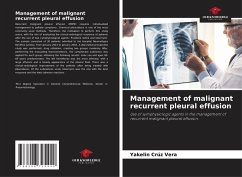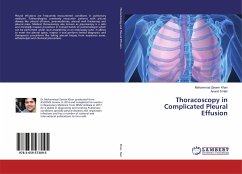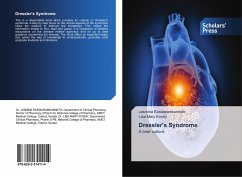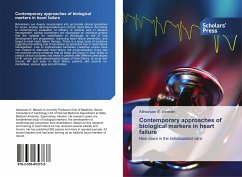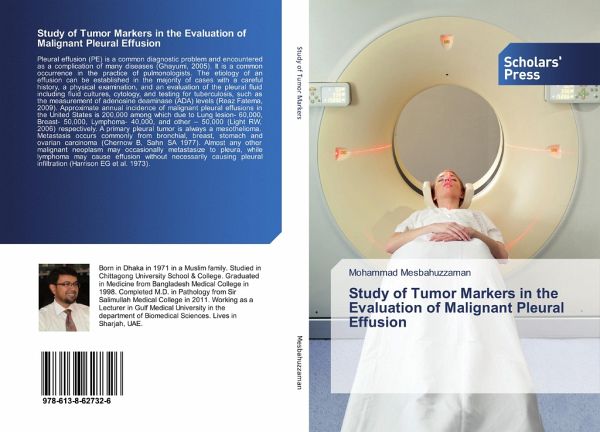
Study of Tumor Markers in the Evaluation of Malignant Pleural Effusion
Versandkostenfrei!
Versandfertig in 6-10 Tagen
45,99 €
inkl. MwSt.

PAYBACK Punkte
23 °P sammeln!
Pleural effusion (PE) is a common diagnostic problem and encountered as a complication of many diseases (Ghayumi, 2005). It is a common occurrence in the practice of pulmonologists. The etiology of an effusion can be established in the majority of cases with a careful history, a physical examination, and an evaluation of the pleural fluid including fluid cultures, cytology, and testing for tuberculosis, such as the measurement of adenosine deaminase (ADA) levels (Reaz Fatema, 2009). Approximate annual incidence of malignant pleural effusions in the United States is 200,000 among which due to L...
Pleural effusion (PE) is a common diagnostic problem and encountered as a complication of many diseases (Ghayumi, 2005). It is a common occurrence in the practice of pulmonologists. The etiology of an effusion can be established in the majority of cases with a careful history, a physical examination, and an evaluation of the pleural fluid including fluid cultures, cytology, and testing for tuberculosis, such as the measurement of adenosine deaminase (ADA) levels (Reaz Fatema, 2009). Approximate annual incidence of malignant pleural effusions in the United States is 200,000 among which due to Lung lesion- 60,000, Breast- 50,000, Lymphoma- 40,000, and other - 50,000 (Light RW, 2006) respectively. A primary pleural tumor is always a mesothelioma. Metastasis occurs commonly from bronchial, breast, stomach and ovarian carcinoma (Chernow B, Sahn SA 1977). Almost any other malignant neoplasm may occasionally metastasize to pleura, while lymphoma may cause effusion without necessarily causing pleural infiltration (Harrison EG et al. 1973).



